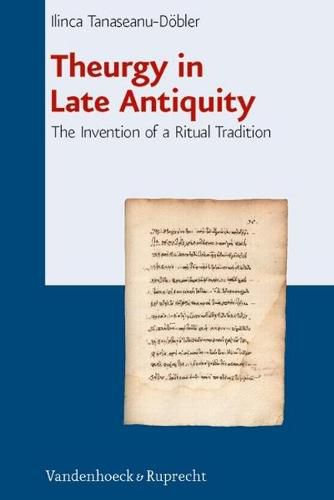Readings Newsletter
Become a Readings Member to make your shopping experience even easier.
Sign in or sign up for free!
You’re not far away from qualifying for FREE standard shipping within Australia
You’ve qualified for FREE standard shipping within Australia
The cart is loading…






Theurgy is commonly taken to denote a complex of rites which are based on the so-called Chaldean Oracles, a collection of oracles in hexameters, which were probably composed during the late 2nd century AD. These rituals are mostly known through Neoplatonic sources, who engage in a passionate debate about their relevance to the salvation of the soul and thus to the philosophers ultimate goal. Ilinca Tanaseanu-Doebler examines the development of the discourse on theurgy, attempting to reconstruct what was understood as theurgic ritual in the late antique sources. Withstanding the temptation to impose a unity on the disparate sources which span several centuries, she thus goes beyond the picture of a coherent, extra-philosophical tradition drawn by the Neoplatonists to sketch the variations in the rituals subsumed under ‘theurgy’ and their function, and shows how every author constructs his own ‘theurgy’. This perspective leads to consider theurgy as an example of an ‘artificial’ ritual tradition, composed from already existing elements to create something claimed as sui generis. Theurgy offers the great opportunity to look at such a tradition from its beginning up to its end and to analyse the mechanisms of inventing and reinventing such a ritual tradition in process.
$9.00 standard shipping within Australia
FREE standard shipping within Australia for orders over $100.00
Express & International shipping calculated at checkout
Theurgy is commonly taken to denote a complex of rites which are based on the so-called Chaldean Oracles, a collection of oracles in hexameters, which were probably composed during the late 2nd century AD. These rituals are mostly known through Neoplatonic sources, who engage in a passionate debate about their relevance to the salvation of the soul and thus to the philosophers ultimate goal. Ilinca Tanaseanu-Doebler examines the development of the discourse on theurgy, attempting to reconstruct what was understood as theurgic ritual in the late antique sources. Withstanding the temptation to impose a unity on the disparate sources which span several centuries, she thus goes beyond the picture of a coherent, extra-philosophical tradition drawn by the Neoplatonists to sketch the variations in the rituals subsumed under ‘theurgy’ and their function, and shows how every author constructs his own ‘theurgy’. This perspective leads to consider theurgy as an example of an ‘artificial’ ritual tradition, composed from already existing elements to create something claimed as sui generis. Theurgy offers the great opportunity to look at such a tradition from its beginning up to its end and to analyse the mechanisms of inventing and reinventing such a ritual tradition in process.